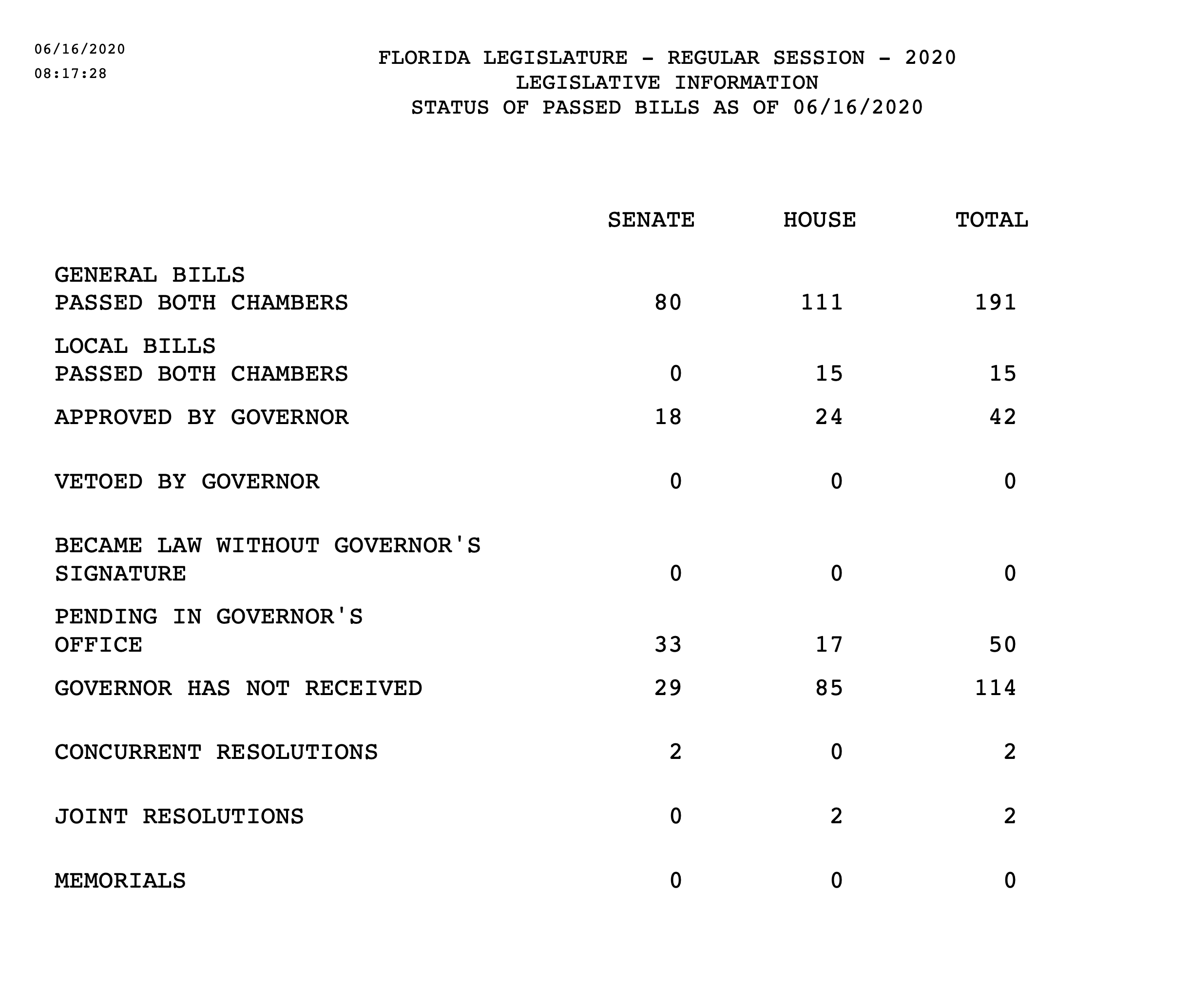What Are We Waiting For?
It is a simple question: What are we waiting for?
The last time the Florida Legislature heard/passed a bill was March 13th (95 days ago, but who’s counting?). The Budget was passed on March 19th (89 days ago). Since then, the economic fallout from state mandated social distancing orders in response to Covid has left districts bracing for what seems like inevitable budget cuts. Legislative leadership, however, appears to be in no hurry to address the upcoming year or even see their newly passed bills signed into law.

As of this morning (June 16th), there are 50 bills waiting on the Governor’s desk for him to take action and there are still 114 bills that have not even been sent to the Governor! Meanwhile, Florida’s school districts try to plan for a fiscal year which begins July 1st (15 days), with increased costs brought on by Covid, during a global economic crisis, unaware of what new laws they will have to conform or what their budgets will look like… what are we waiting for?
After passing both chambers, the Florida Legislature is required to present bills to the Governor for action. The Governor may veto a bill or sign it into law. The Governor, also, has line item veto power over the state budget. If the Governor fails to take action on a bill within 15 after its presentation, the bill goes into law without the Governor’s signature.
- HB641: Repeals the Florida Best and Brightest bonus programs and establishes the Teacher Salary Increase Allocation. Increasing minimum teacher pay was one of the Governor’s priority issues this session. H641 requires each school district submit their approved district salary distribution plan, along with the approved salary distribution plan for each charter school in the district, to the Department of Education by October 1 of each fiscal year (just over 100 days from now)
- HB7067: Massive expansion of Florida’s voucher program, among other things, quadrupling the growth rate of the Family Empowerment Scholarship, the voucher which is funded directly from the public school funding formula. Why expand vouchers when budget cuts are likely needed
- HB5007: Increases the employer contribution rates for the Florida Retirement system, at an increased cost of $232.7 million to school districts. (In the past, when similar adjustments were made, the State picked up the tab.) Vetoing this bill should be a no brainer
- HB5001: General Appropriations Act, i.e. the Budget, including $22.7 Billion for the FEFP (which includes the $500 Million Teacher Salary Allocation), a $40 increase in the Base Student Allocation, a 2.4% increase ($184) in Total per pupil spending and over $125 million for state assessments and evaluation via the state Board. A recent cost analysis from the American Association of School Administrators (superintendents) and the Association of School Business Officials International suggested that school districts can expect to spend an additional $490 per student in order to cover costs associated with purchasing hand sanitizer, disinfectant wipes and other cleaning supplies, gloves, masks and other personal protective equipment, hiring additional custodial staff and nurses, and more.
It has been 95 days since the end of session… Again, what are we waiting for?
